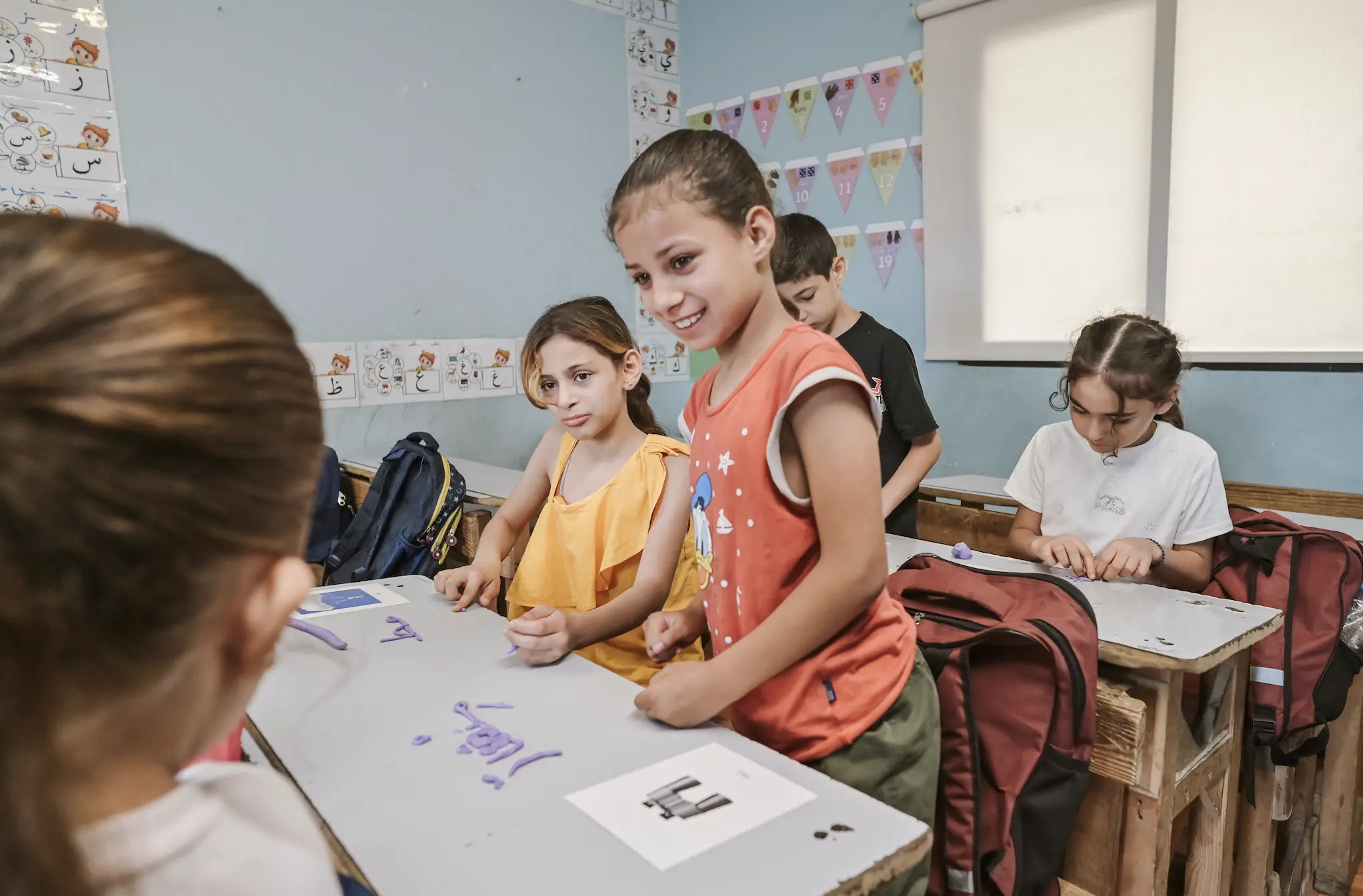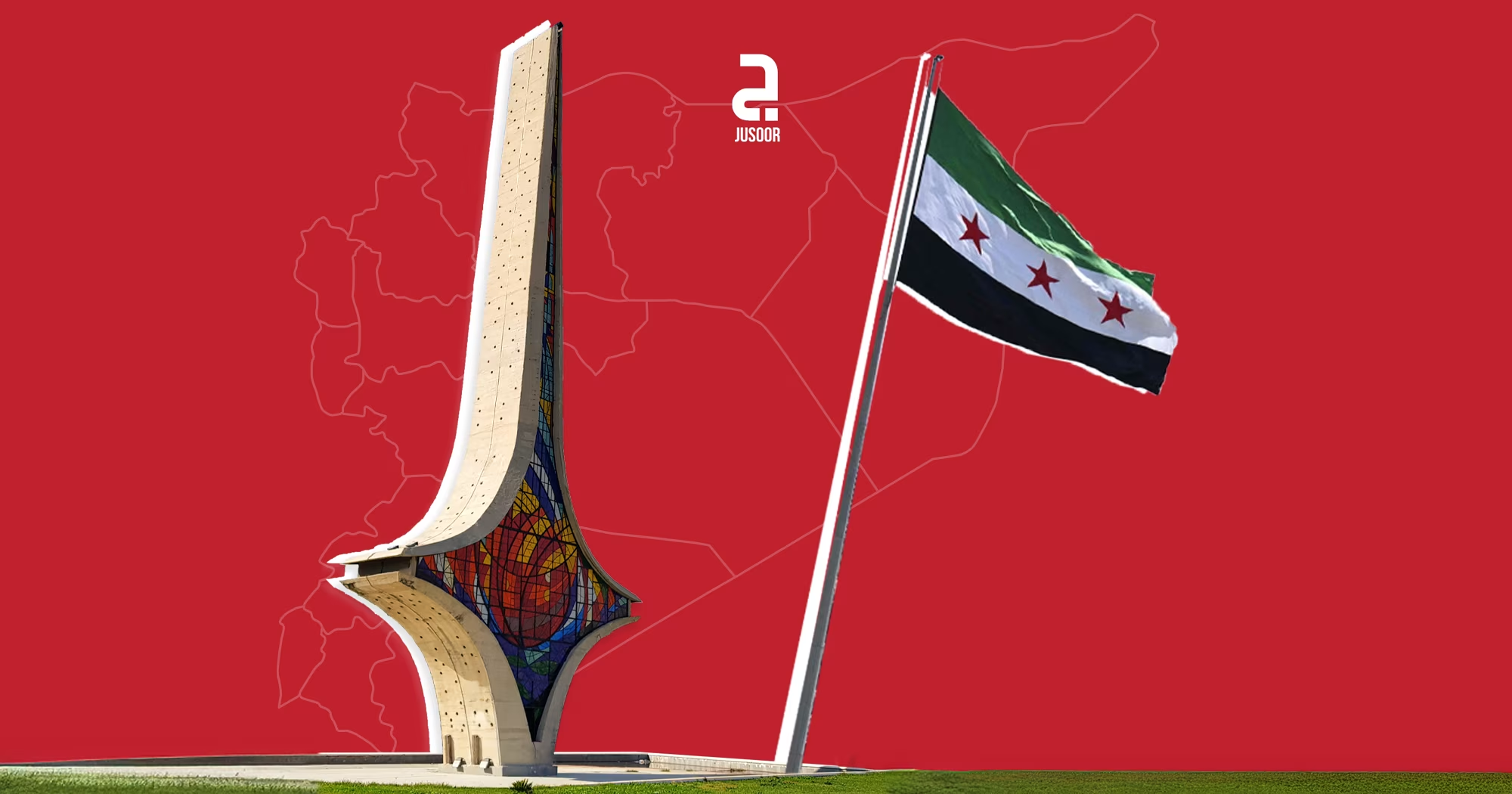تجلس منى وأختها علا على الأرض مع هاتف ذكي وأوراق عمل وأقلام، وتقومان ببعض التمارين اللغوية.
"أنظر إلى الرسائل على الهاتف وما يقوله المعلمون، وأستخدم ورقة وقلمًا لكتابة ما يطلبونه. الآن أعرف كيف أقرأ قليلاً. أريد أن أتعلم المزيد، وأريد أن أتحدث الإنجليزية، قبل هذا لم أكن أستطيع فعل أي شيء من هذا"، تقول منى.
فرت منى البالغة من العمر 12 عامًا من حمص بسوريا مع والديها عندما كانت طفلة صغيرة في عام 2013. وُلدت شقيقتها علا البالغة من العمر سبع سنوات في مخيم للاجئين في البقاع بلبنان حيث استقروا منذ ذلك الحين. تواجه أي أسرة في موقفهم الكثير من التحديات، ولكن بالنسبة لهم بشكل خاص فإن الأمر أكثر صعوبة حيث وُلدت منى وعلا بالشلل الذي يعيق نمو الجزء السفلي من أجسادهما.
إن إعاقتهم الجسدية جعلت من المستحيل على الفتيات الالتحاق بالمدارس اللبنانية.
وتقول والدتهما سهام: "لم تقبلهما أي مدرسة لأنهم اعتقدوا أن ذلك سيكون مسؤولية كبيرة لأن ابنتي تحتاجان إلى اهتمام وثيق للغاية حتى لا تؤذي نفسها".
حاولت الأم والأب شادي، الخباز، جاهدين إيجاد علاج لحالة ابنتيهما، لكن دون جدوى. ومع ذلك، فقد عزما على منح ابنتيهما أفضل حياة ممكنة.
"إن أدمغتهم تعمل بكامل طاقتها، وهم عباقرة. وأعتقد أنه إذا أتيحت لهم الفرصة الكافية، فإنهم قادرون على تقديم الكثير للبشرية"، كما يقول شادي.
لقاء بالصدفة
التقى المعلمون في برنامج جسور لتعليم اللاجئين مع منى وعلا ووالدتهما بالصدفة في السوق المحلي، وشعروا أن الفتاتين يمكن أن تستفيدا حقًا من برنامج جسور " عزيمة" .
يقدم برنامج "عزيمة" للأطفال فرصة التعلم عن بعد من خلال توفير هاتف ذكي وباقة إنترنت حيث يمكن للمعلمين إرسال مقاطع فيديو توضيحية وتمارين وإعطاء ملاحظات للطلاب. كان البرنامج يعمل أثناء كوفيد للتعامل مع تدابير التباعد الاجتماعي، ولكن لاحقًا، بعد نجاحه، تم تطوير البرنامج لتلبية احتياجات الأطفال الذين لا يستطيعون الذهاب إلى المدرسة لأسباب مختلفة مثل الإعاقات الجسدية، كما هو الحال مع منى وأولا، ولكن قد يكون أيضًا بسبب المسافة إلى المدرسة، أو لأن الأطفال يجب أن يعملوا لدى أسرهم لتغطية نفقاتهم.
تقول المعلمة زينب عجرم: "هدفنا في برنامج عزيمة هو أن يتعلم الأطفال القراءة والكتابة على الأقل حتى يتمكنوا من التواصل مع العالم من حولهم. الآن يمكنهم القراءة والكتابة، والتحدث باللغة الإنجليزية قليلاً، ويعرفون الأرقام، ويمكنهم قراءة لافتات الشوارع".
مستقبل أكثر إشراقا
"لقد استفادوا كثيرًا، كما تحسنت صحتهم النفسية بشكل كبير، حيث كانوا يعانون قبل رؤية أصدقائهم وجيرانهم يذهبون إلى المدرسة ويتعلمون بينما هم لا يستطيعون ذلك"، تقول والدتهم سهام.
تقول منى: "الجزء المفضل لدي في اليوم هو الدراسة، حيث أقضي أكثر من خمس ساعات يوميًا على الهاتف وأقوم بواجباتي"، مضيفة أنها تساعد أختها الصغرى أيضًا في دراستها.
والآن بعد أن خطت منى أولى خطواتها في رحلتها التعليمية، تشعر أن حلمها أصبح قابلاً للتحقيق. وتؤكد منى: "عندما أكبر، أريد أن أصبح طبيبة لأعالج الأشخاص المصابين بالأمراض".



.webp)